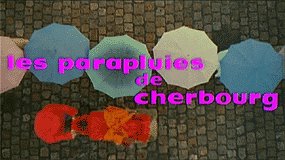I Normally Don't Do This Kind of Thing . . .
November 7, 2005but I do so enjoy the posts at TomCruiseIsNuts.com. Here's a sample:
 Be afraid. Be very afraid. |
From Bodog : "Tom Cruise plans to lay out $15 million to buy a place in Montecito, Calif., just two doors away from Oprah's $50 million estate! Are these two A-listers just really, really good friends -- or is something else going on? Is it chemistry -- or Scientology? According to a source, Tom, 43, wants to covert Oprah "I think he really thinks he can convert her. Tom seems really eager to lure Oprah into the church because he feels she would be a fantastic spokesperson and attract a whole new set of followers."
So it's finally here, the End of Days. Once they have Oprah, there will be no stopping them. We tried to warn you. So as there seems to be nothing we can do to stop this coming apocalypse, we've done the next best thing and found a way to profit from it! Check out the current odds at Bodog.com on Oprah's conversion. We plan to make some serious money on this... at least then we'll have enough funds to tithe to our future Scientology masters to avoid "re-education" at an "Oprah Camp".
November 3, 2005
 "Eww! A girl is touching me! Get it off, get it off!" |
From MSNBC : "Nicole Kidman is said to be “devastated” by the news that her ex-hubby, Tom Cruise, is about to have his first biological [cough, cough] child [spawn] with fiancée Holmes [CSCV] . And, although Cruise and Kidman are said to be in regular contact with one another, the buzz is that Kidman found out that he was an expecting dad from television. “Nic learned about Tom and Katie’s baby [spawn] the same way as everyone else — from the TV,” a friend of Kidman’s told Britain’s Grazia magazine. “She went shopping immediately after hearing the news to try and take her mind off it, but that just made things worse. She says people pointed at her, and everyone was whispering as soon as she turned her back. She’s taking it very hard.”
Of course, with the Cruiser's newly discovered "Remote Spawning" capability, she should be very careful what she wishes for, he could probably impregnate her cold, barren womb from Toledo. Oh, and Bewitched? Not funny.
November 2, 2005
 Ex-Montreal Expos' mascot Youppi loses job. Vows bloody revenge on Martin Holmes.  "Grandpapa! Grandmama! I wuv you... NOW BOW DOWN BEFORE YOUR ALIEN CONQUEROR, HUMAN SCUM!" |
From MSNBC : "Holmes’s father, Martin, is a lawyer and is representing his daughter in the negotiations, reports the upcoming issue of The Star. Martin Holmes “is playing hardball with the prenup negotiations,” according to the tab, which quotes a source as saying that Holmes wants to make sure that his daughter will receive “a lump sum payment in the millions if the marriage should dissolve before the five-year mark.” Such terms are unusual for a prenup, which usually awards a spouse more money for a longer marriage, but, the source tells the mag: “The Holmes family would never tell Katie if they thought her marriage was doomed from the get-go, but they are pressuring her to hold out not only to protect her interests, but those of her child.”
Wow, have we just found the only sane people in this entire fiasco of a disaster of a train wreck of an Armageddon? Way to go Holmes family! Now if only you hadn't raised your daughter to be a complete moron who allowed herself to be impregnated by an alien space spawn, you guys would really be the best parents EVER! But, hey, 1 out of 2 ain't bad... at least you're getting a prenup! Mazel tov!
November 1, 2005
The Cruiser asks the Cruiser Spawn Carrying Vehicle (the CSCV) to sign a prenup. The CSCV displays brilliant legal mind and "Freaks out"
 Katie's crack legal team, led by ex-Montreal Expos' mascot Youppi, comments on prenup. Thumbs up! |









